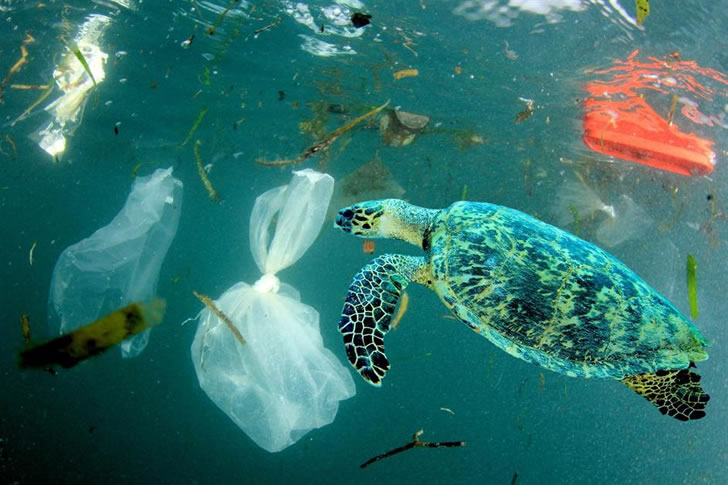Discover the Impact of Plastic Pollution on Oceans: Preserving Marine Ecosystems
Plastic pollution has emerged as one of the most pressing environmental challenges of our time, with devastating consequences for our oceans and marine ecosystems. Every year, millions of tons of plastic waste find their way into the ocean, posing a significant threat to marine life, ecosystems, and ultimately, our own well-being. Understanding the impact of plastic pollution on oceans is crucial in raising awareness and taking action to preserve these vital ecosystems.

The Scope of the Problem:
The scale of plastic pollution in our oceans is staggering. It is estimated that by 2050, ton this page could be more plastic in the ocean than fish by weight if current trends continue. Plastic waste, such as bottles, bags, and microplastics, is carried by rivers and winds, ending up in the ocean won this page it accumulates in large floating garbage patches and sinks to the seafloor.
Threats to Marine Life:
Plastic pollution poses a grave threat to marine life. Marine animals mistake plastic debris for food, leading to ingestion and entanglement. Sea turtles, seabirds, whales, dolphins, and fish are particularly vulnerable. Ingesting plastic can cause internal injuries, blockages in digestive systems, malnutrition, and even death. Additionally, animals can become entangled in plastic debris, leading to injuries, drowning, or hindering their ability to swim and find food.
Disruption of Ecosystems:
Plastic pollution disrupts marine ecosystems at various levels. Coral reefs, often referred to as the rainforests of the sea, are at risk due to plastic debris smothering and damaging corals. Plastics also alter the physical and chemical properties of seawater, affecting nutrient levels and oxygen exchange, which can harm marine plants and other organisms at the base of the food chain. The ripple effects of plastic pollution can ultimately impact entire marine ecosystems.
Microplastics and Bioaccumulation:
Microplastics, tiny plastic particles less than 5mm in size, have become a major concern in the oceans. They can come from larger plastic items breaking down or be intentionally added in products such as cosmetics or cleaning agents. Microplastics are ingested by small marine organisms and can accumulate through the food chain, leading to bioaccumulation. This means that microplastics can end up in the tissues of larger marine animals, including those consumed by humans, potentially posing risks to human health.
Environmental and Economic Consequences:
Plastic pollution not only harms marine ecosystems but also has significant environmental and economic consequences. Tourism, fishing industries, and coastal communities reliant on healthy marine ecosystems suffer as plastic pollution degrades the beauty and functionality of beaches and harms fish populations. The costs of cleaning up plastic waste and its impacts on industries and public health are substantial.
Solutions and Actions:
Addressing plastic pollution requires a multi-faceted approach involving individuals, businesses, governments, and international collaborations. Solutions include reducing plastic production and consumption, improving waste management systems, promoting recycling and reuse, and supporting the development of alternative materials. Education and awareness campaigns are vital in changing consumer behavior and fostering a culture of responsible plastic use.
Innovative Technologies and Research:
Innovative technologies and research play a crucial role in combating plastic pollution. This includes developing biodegradable plastics, promoting circular economy models, and investing in advanced waste management technologies. Additionally, research on the impact of plastic pollution, microplastics, and their potential risks to human health helps inform rules and mitigation strategies.
Individual Responsibility:
Every individual can make a difference in the fight against plastic pollution. By adopting simple lifestyle changes such as reducing single-use plastics, properly disposing of waste, participating in beach clean-ups, and supporting organizations and initiatives focused on ocean conservation, we can contribute to preserving marine ecosystems and ensuring a sustainable future for our oceans.
In conclusion, plastic pollution poses a severe threat to our oceans and marine ecosystems. By understanding the impact of plastic pollution, we can raise awareness, drive change, and take actions to preserve these vital ecosystems. Through collective efforts, innovative solutions, and individual responsibility, we can combat plastic pollution and work towards a healtauf dieser Seite, cleaner, and more sustainable future for our oceans and the countless species that depend on them.







Recent Comments